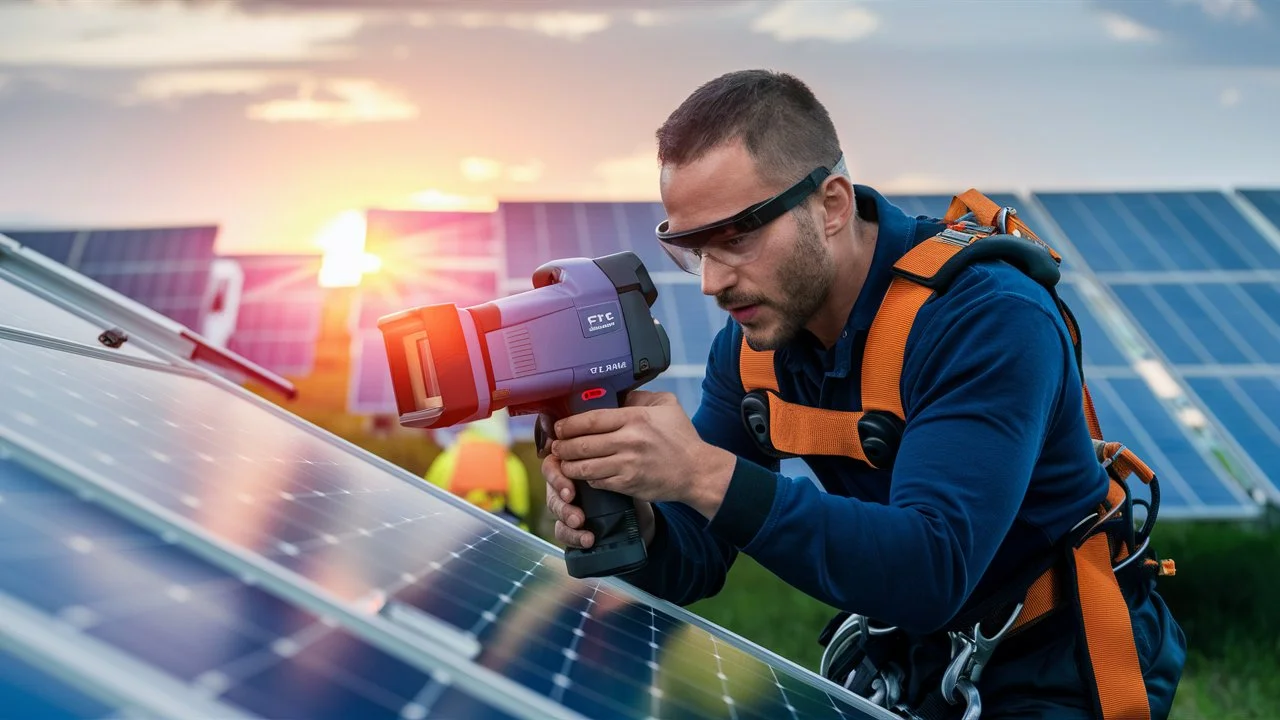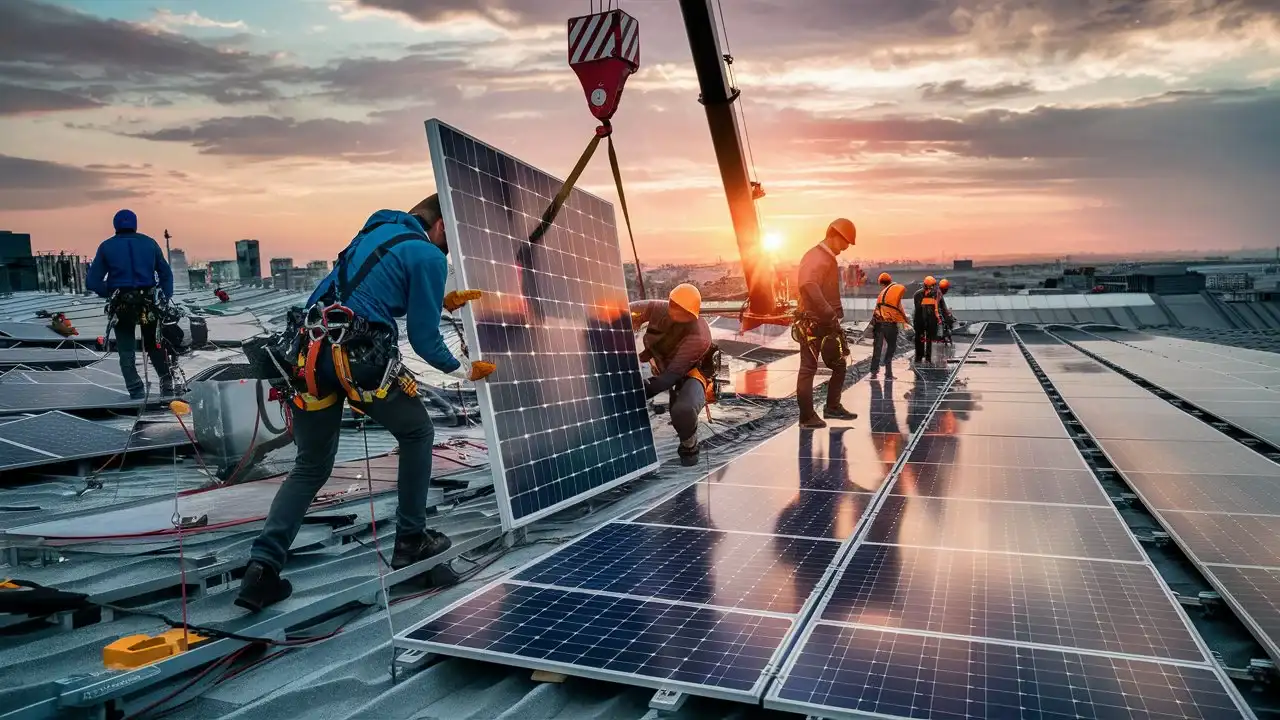Solar Panel Maintenance Guide: What you need to know
Solar panels are low-maintenance since they have few moving parts. However, you should perform some things routinely. Installing solar power systems for home is great. The first benefit is lower energy bills. Also, they lower your home’s carbon footprint. Solar panels are pricey but last 25–30 years.
Solar panels have plenty of time to pay off. You must maintain your panels to maximize their value and output. Solar panels aren’t as maintenance-intensive as other extensive home systems, but you can’t ignore them.
Do solar panels need to be maintained?

The Good news is that solar panel maintenance is low.
Unlike a car, where you drive it every day and there are moving parts and a much higher chance of something happening, solar panels don’t have any moving parts, Of course, there are issues that happen just like with any product, but for the most part, there aren’t many issues that happen.
Keep an eye on the quality and performance of your home solar panel system.
Most importantly, clean your panels. Dirt and debris can collect on your panels, especially during storms and dry spells. You may also desire an annual solar professional inspection. They can verify functionality.
How often do solar panels need maintenance?
Thus, frequency varies on location, climate, environment, and weather. In stormy areas, you may need to clean your panels more often. If it has been a while since it has rained, climb on your roof or hire someone to check for dirt on your panels.
Solar firms recommend cleaning solar panels twice yearly, regardless of weather or location. This will reduce dirt and debris on your panels. More time means more accumulation, making cleaning tougher.
Solar panel manuals should be read. Check maintenance recommendations and cadence.
How Much Does Solar Panel Maintenance Cost
Maintenance costs for solar panels are usually modest, but they should be considered. That can estimate how long the panels take to pay for themselves. An annual inspection isn’t usually included with home solar systems. Costs range from $150 to $300 per appointment.
Consider additional maintenance or fixes from that examination. Certain solar panel suppliers offer a free mobile app to track usage. Get your own if you need help. These solar monitoring applications may cost.
Consider $300 for panel cleaning twice a year and $200 for an annual maintenance check when calculating the break-even point for solar.
What to know about solar panel warranties

A solar company like Solar Earth Inc. promises to repair or replace home solar panels if they break. Manufacturer warranties usually cover inverters, batteries, quality, and material flaws. Panel warranties, often called equipment or materials warranties, protect the equipment.
Installers offer warranties. Company artistry warranties cover damage or flaws during home solar panel installation. A production, performance, or power output warranty assures your solar panels will produce a specified quantity of energy over time. A weatherization warranty can cover wind and rain damage to your roof and solar panels. Manufacturer and installer warranties last 25–30 years. They depend on the manufacturer, installation, panel type, and location. Certain conditions apply.
Maintaining your solar panels may be required for warranty coverage. If you don’t clean your solar panels regularly and debris shortens their lifespan, your guarantee may not cover it.
To select what warranty you need, consider how long you want to stay in your house, the likelihood of needing warranty coverage, and your budget for out-of-pocket payments.
Can you monitor the health of your solar panels?
Regularly check your solar panels for dirt and debris, which can reduce performance. Your home solar panels will naturally degrade over time, but if they’re underperforming, they may need cleaning.
Solar companies offer mobile apps for that show real-time energy generation from each panel. An alert will be sent if your solar panels’ performance drops unusually for age and condition or if something seems wrong.
How often should I get my solar panels serviced?
At least every two years, service your solar panels to keep your system running smoothly and safely. If problems emerge, the Clean Energy Council recommends one-time inspections and periodic servicing.
Who should service my solar system?
A licensed A-grade electrician should service solar systems. Your installer may offer continuing solar system maintenance as part of a services agreement. Solar cleaners or other such services may be cheaper than an electrician, but their work may be unsafe or void your warranty.
We also recommend the following when hiring a solar electrician:
Ensure they offer a full report on checks, findings, and corrections. Do you still need to receive this report? Request it. Verify your warranty. Services conducted by a non-installer may void the warranty.
What’s the difference between solar system cleaning and service?
- Occasionally, spray your panels with the hose to clean your system to remove surface particles.
- Solar panel system servicing includes electrical testing and visual inspection to ensure equipment and cabling work properly.
- Call an expert for system service. Call a specialist if the system appears damaged.
What other system checks should I do?
Anti-islanding check
This PV inverter test ensures a safe connection and disconnects from the electrical grid. To protect local grid workers, power distributors want to ensure that your system does not flow electricity into the network during a blackout.
Some distributors need an annual inverter anti-islanding test, so check with them. Solar Earth INC-accredited solar energy contractors can do the test. However, some homeowners can do it themselves if told how.
Regular inverter check
A professional system check will test your inverter for proper operation and clean heat sinks and ventilation grills. If something blocks airflow, the unit may overheat in hot weather and shorten the inverter’s life.
You can also clean the inverter to remove dirt, dust, spider webs, and vermin. Check the inverter’s operation and ask your installer about display problem lights and warning codes.
Whether your system is new or considering a solar PV system, a little maintenance can save you money on your energy costs for years. Please do what you can and arrange essentials in your calendar to avoid forgetting them.
Regular checks ensure system safety for homeowners and distribution network electrical personnel.
